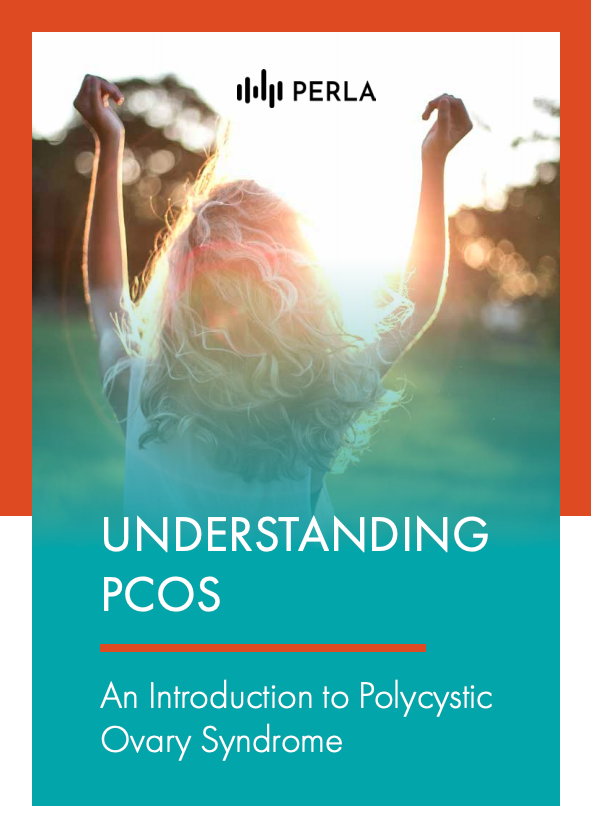About 80–90% of women who suffer from infertility are not ovulating (anovulation), a common consequence of PCOS. During the last decades, the evaluation and treatment of infertility have improved dramatically. It is estimated that 70 out of 100 couples referred to fertility clinics eventually achieve a pregnancy1, and more attempts lead to better success rates.2
Seeking Help From a Fertility Expert
If you have difficulties getting pregnant, you may feel lost, confused, and desperate to fulfill your dream of becoming a mother. While every infertility journey is unique for each person, these challenging feelings can affect your emotional and mental well-being. Know that there are other options to pursue. It may be appropriate to move to a higher level of medical care.
To get to the root of your infertility, you need the help of experts. The earlier you start with fertility treatment, the greater your chance of becoming pregnant. Even if you are diagnosed with PCOS, other causes must be ruled out before starting treatment. You may have other conditions that must also be treated.
The first thing to do is to consult your general practitioner. Your GP will be able to refer you to the appropriate specialist. If you are planning to consult a doctor privately, it is still worth discussing your plans with your GP.
Your local fertility clinic may be able to provide the treatment that you require. However, more complex methods, such as IVF, may require referral to another facility. If you have already chosen a fertility clinic, it would be helpful to ask if they will permit your local physician to do some blood tests or injections.
When Is The Right Time?
Infertility is the inability to conceive within 12 months of unprotected sexual intercourse. If you are over 35 years of age, many clinicians use a 6-month time frame.3 There are many problems that affect your chances of conceiving, so it’s important for your partner to be evaluated as well for conditions that contribute to infertility.
Couples with infertility problems should be referred together to a licensed fertility clinic with easy access to relevant specialists, including a gynecologist, urologist, and fertility specialist also known as a reproductive endocrinologist (RE).
Infertility in women is often caused by ovulatory problems (for example caused by PCOS) or anatomical abnormalities such as a blockage in the fallopian tubes. In men, the number and quality of sperm commonly affect fertility. About 10% of couples are diagnosed with unexplained infertility. It means the cause of infertility remains unknown even after an extensive infertility workup.
You and your partner may be referred to a specialist for the following reasons:4
Women:
- over 35 years and trying to get pregnant for a year
- history of pelvic inflammatory disease (PID)
- history of menstrual irregularities
- previous abdominal or pelvic surgery
- history of sexually transmitted infections
- abnormal findings from the initial investigation
Men:
- low sperm count or poor sperm quality
- history of varicocele
- history of sexually transmitted infections
- previous or current genital problems
- previous urogenital surgery
- serious systemic illness
Choosing a Fertility Clinic
Infertility clinics have a team of specialists who address both the medical and emotional aspects of infertility. These clinics will conduct an efficient series of diagnostic tests and offer a wide array of treatment options.
It may be tempting to stay with your GP or OB-GYN/Gynecologist at first, but unless they specialize in infertility, you may want to ask for a speedy referral to a fertility specialist for evaluation and treatment. This ensures that you don’t run the risk of depleting your finances due to incomplete or inappropriate diagnostic tests. Some clinics may require that you repeat the same tests!
Here are the factors to consider when choosing a fertility clinic:5
- Location
- Services
- Cost
- Eligibility criteria
- Waiting list
- Live birth/multiple birth rate
- Ratings from patients and inspectors
Another thing to consider is whether the clinic offers counseling services. Many women find that they benefit from talking to a social worker/psychologist, support group, and other professionals knowledgeable about infertility and its emotional implications. For you, this may occur after getting a diagnosis or later during treatment.
What To Expect?
There are many other strategies if you fail to get pregnant through weight loss and lifestyle modification. A fertility expert will help you decide on the next best step to achieve your goal. Depending on your case, you may be treated with drugs that induce ovulation, such as clomiphene citrate and careful monitoring with serial ultrasound scans; insulin lowering agents such as metformin; and gonadotropin injectables.6
Only a small number of patients will require assisted reproductive technology (ART) to get pregnant. Intrauterine insemination (IUI) and in vitro fertilization (IVF) are the most commonly used methods. For women with PCOS, ART results in higher pregnancy rates than intercourse, but it requires additional laboratory work and multiple hospital visits and will, therefore, be more expensive.
Sources:
- Dowers A, Yates R. New developments in infertility. Pulse. 1998
- NEJM Journal Watch: Summaries of and commentary on original medical and scientific articles from key medical journals. Accessed July 6, 2020. https://www.jwatch.org/na40489/2016/04/04/developments-infertility-treatment
- Practice Committee of American Society for Reproductive Medicine. Definitions of infertility and recurrent pregnancy loss: a committee opinion. Fertil Steril. 2013;99:63.
- Chambers R. Fertility Problems: A Simple Guide. Chapman and Hall/CRC; 2018
- Finding the best fertility clinic for you | Human Fertilisation and Embryology Authority. Accessed July 6, 2020. https://www.hfea.gov.uk/choose-a-clinic/finding-the-best-fertility-clinic-for-you/
- Balen AH. Polycystic Ovary Syndrome a Guide to Clinical Management. Taylor & Francis; 2005.


